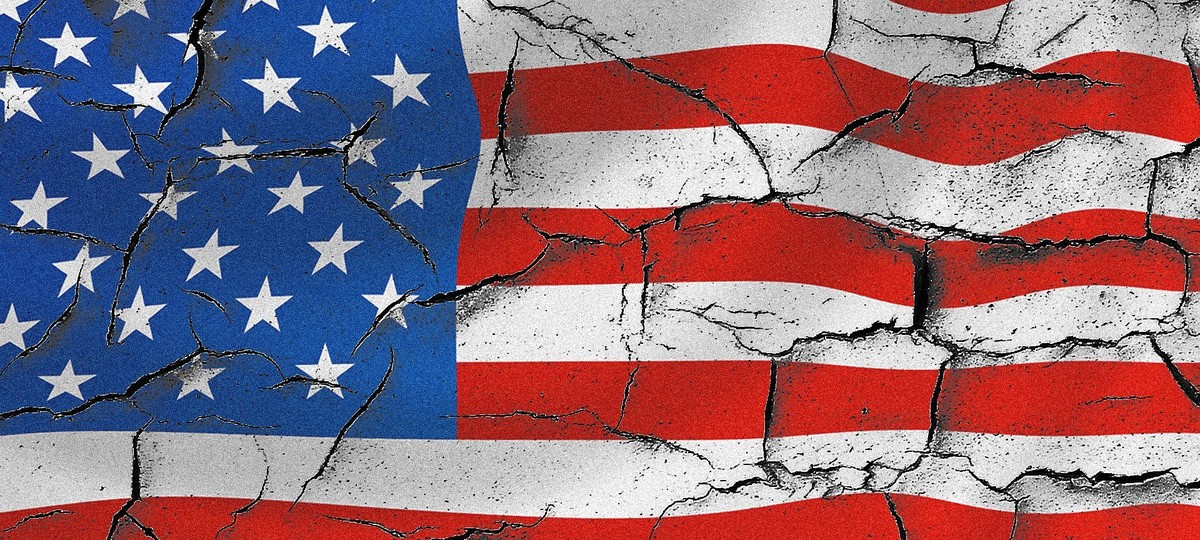
A cadre of apocalyptic writers on the right, who believe the country is too far gone to save, has become obsessed with a Secession 2.0 that would cleave red America from blue and allow the former to escape the ever-rising tide of woke insanity.
There's no doubt the country is deeply riven along political, cultural and religious lines. Yet a national divorce has nothing to recommend it. The practical obstacles are insuperable, and the likely effects would be very unwelcome to its proponents.
If an insufficient patriotism is one of the ills of contemporary America, national divorce would prescribe arsenic as a cure. It would burn down America to save America, or at least those parts of it considered salvageable.
A disaggregated United States would be instantly less powerful. Indeed, Russia and China would be delighted and presumably believe that we'd deserve to experience the equivalent of the crackup of the Soviet Union or the Qing dynasty, respectively.
The economic consequences could be severe. The United States of America is a continentwide free trade zone, creating a vast domestic market that makes us all better off. Exchanging that for a market Balkanized by state or region would be a major loss.
Finally, the United States foundering on its domestic divisions would be a significant blow to the prestige of liberal democracy. Abraham Lincoln worried about this effect the first time around, and it might be even worse now, with a long stable republic unable to survive internal dissension.
Then, there's the question of how this is supposed to work. Lincoln warned of the physical impossibility of secession when the Mason-Dixon Line was a more-or-less ready line of demarcation. How would it play out now, with conservatives and progressives amply represented in every state in the Union?
If there were to be sovereign pure red and blue places, this wouldn't look like the relatively neat split of the United States into two in the 1860s, but more like post-Peace of Westphalia Europe, with hundreds of different entities.
Some proponents of national divorce say not to worry — it can all be worked out amicably. But if we are going to split up because we can't even agree on bathroom policies or pronouns, how are we going to agree to divvy up our territory and resources?
It would matter, obviously, who gets control of the federal government, the most powerful organization on Earth. It has 1.3 million people under arms and a stockpile of 3,800 nuclear warheads. Whether it accrues to red or blue America would, to understate it, be a matter of considerable haggling.
On top of all this, red-state secession would be self-defeating. Let's say Texas left. That's 40 electoral votes off the national map for Republicans. In 2020, with no Texas, Trump could have won Pennsylvania, Michigan and Wisconsin, and still fallen short of an electoral-vote majority.
On the other hand, Texas isn't quite as ruby red as it used to be. It could secede and still find itself governed by the very Democrats it hoped to leave behind.
Besides, would the rest of the country really be willing to watch a state of 29 million people that represents the ninth-largest economy in the world go its own way?
Meanwhile, would red-state secession actually stem the cultural tide? Would the college professors in these places be less woke? Would the newsrooms be more conservative? Would people in the state stop using social media?
The real impetus for the talk of a breakup is despair. It constitutes giving up on convincing our fellow Americans, giving up on our common national project, giving up on our birthright.
This is an impulse to be resisted. Breaking up is hard to do, and quitting on America is — or should be — unforgivable.
(COMMENT, BELOW)


 Contact The Editor
Contact The Editor
 Articles By This Author
Articles By This Author